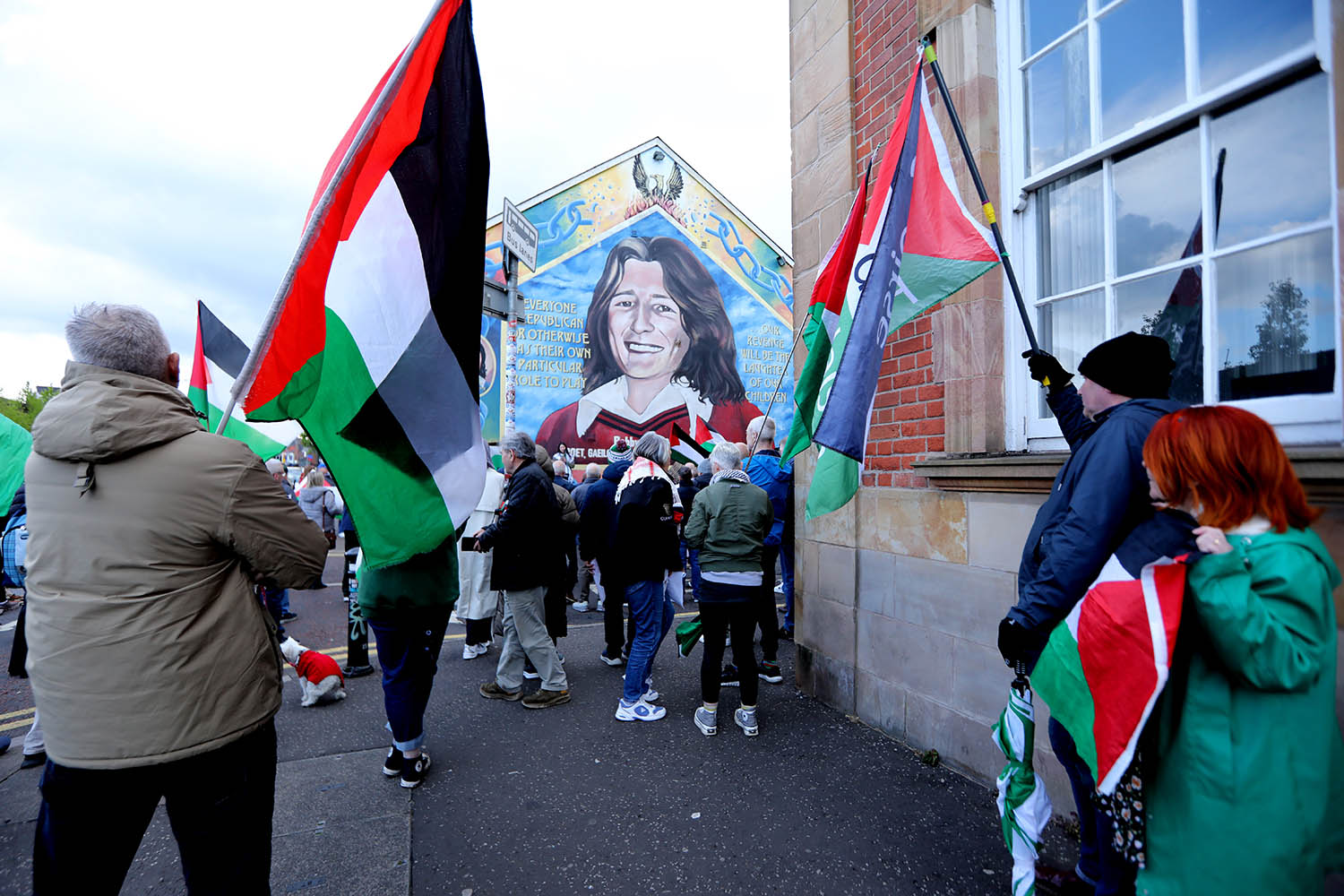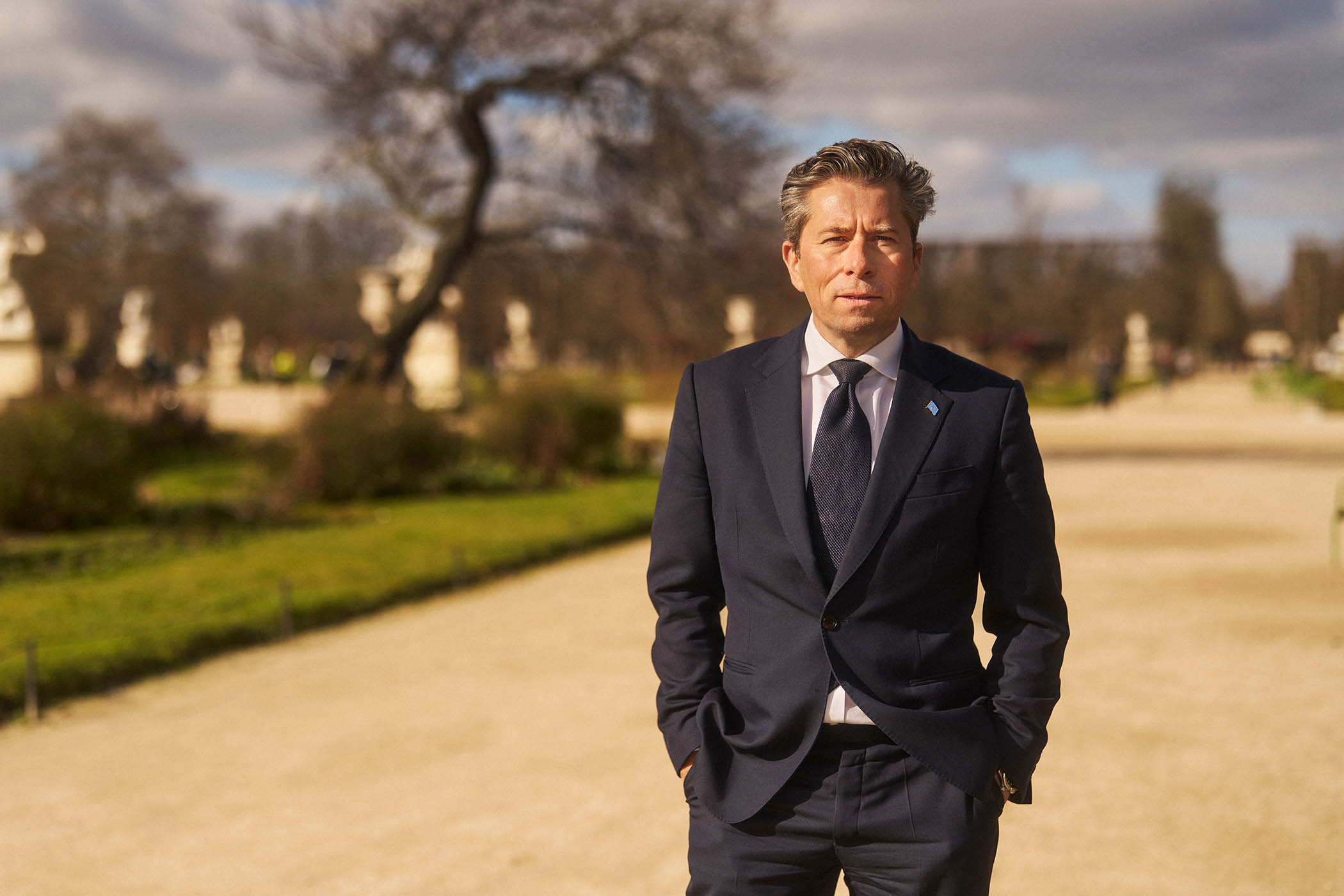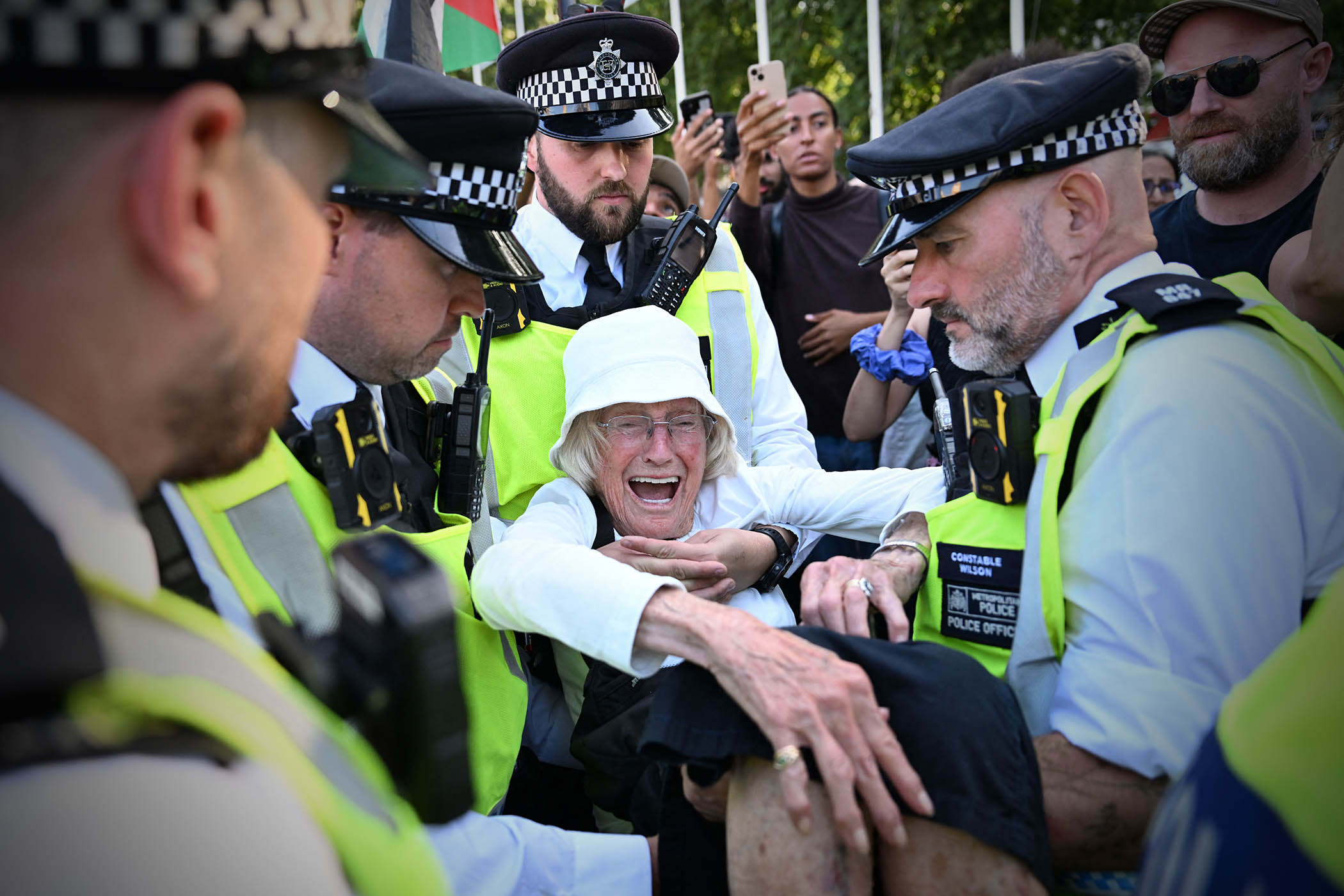There is one part of the UK where terrorist flags and placards have rarely been off the news. For years, the Northern Ireland media has carried stories and editorials saying more should be done to remove the symbols of terrorist groups from lampposts and housing estates.
The failure to remove flags is cited as evidence of two-tier policing. Indeed, the phrase “two-tier policing”, which has now entered the Westminster lexicon, originated in Northern Ireland.
As it happens, the government is now bringing forward legislation, on my recommendation, to make it easier for police to remove these symbols. The legal provision in question is section 13 of the Terrorism Act 2000, which makes it an offence for someone to display an article “in such a way or in such circumstances as to arouse reasonable suspicion that he is a member or supporter of a proscribed organisation”.
A person who commits this offence faces a summary penalty, usually a fine or conditional discharge, and is not in law considered a terrorist (see section 40). This is separate from the more serious offence of inviting support, which requires the prosecution to prove what lawyers call a mental element such as intent.
Few have objected to date to police action to prevent public displays of support for Republican and Loyalist terrorist groups in Northern Ireland, or, in Great Britain, displays in favour of the Sri Lankan LTTE or the Kurdish PKK.
This does not mean calls to allow displays in support of Palestine Action are necessarily wrong. But they are unprecedented because if the law were changed it would leave Islamic State supporters free to hoist their black flags on UK high streets. This might please a certain school of free speech absolutism but is not a serious proposition.
There are essentially two arguments in favour of allowing placards saying: “I support Palestine Action.” The first relates to whether Palestine Action should be banned as terrorists at all. If proscription was off the table, then no one could be arrested for saying they supported the group. In my view this is the key argument.
The second is a genuinely two-tier argument: that Palestine Action, whether because of the nature of its cause, or, worse, the venerable appearance of some supporters, should be given special treatment compared with other terrorist groups. Under this suggestion, the law might be changed to make it an offence to fund Palestine Action, but not an offence to express support for it. This is at the very least a recipe for confusion.
The home secretary’s decision to proscribe Palestine Action was clearly intended to dismantle an organisation of serious saboteurs who have given up on parliamentary democracy. Given the alleged nature and scale of their activities, I think proscription was novel but acceptable.
The cause of Gaza cannot mean terrorist methodology can be excused
The cause of Gaza cannot mean terrorist methodology can be excused
Just as it would have been wrong to extend terrorism legislation in late 2023 to deal with some Gaza protest activity, a move I publicly opposed at the time, it would be wrong to shrink from the consequences of Palestine Action’s alleged agenda today. It cannot be sensibly suggested that the cause of Gaza, any more than the cause of environmentalism, Islamism, racial purity, 5G masts or Irish unification, means that terrorist methodology can be excused.
Far from being an example of heavy-handed authoritarianism, it could be said that there is greater reason to fear the clunking fist of Palestine Action when it chooses to label a business or person “complicit” and therefore a suitable target for action, than the use of terrorism legislation in this way.
My only reservation is that the parliamentary debate was bundled up with debate on two other terrorist groups — Maniacs Murder Cult and Russian Imperial Movement. The government will have had its handling motives, but allowing MPs to vote separately on Palestine Action would have been cleaner.
There is no way ordinary criminal law would be effective against funding, training and recruitment. Ironically, some of those who say the police have sufficient powers believe Palestine Action’s behaviour should not be criminal at all. They argue juries should acquit, irrespective of any directions given by the judge on the law of necessity or self-defence. I believe this explains the involvement of the group Defend Our Juries.
I remain unconvinced the proscription of Palestine Action prevents or chills the expression of support for Palestine. Pro-Gaza marches organised by the Palestine Solidarity Campaign continue to take place. Proscribing the IRA does not prevent residents of Northern Ireland expressing support for a united Ireland. The distinction is between supporting the cause and the organisation. The issue is more acute where there is a similarity between lawful nationalist flags and the flags of terrorist organisations, as in the case of the Tamils/Tamil Tigers. At most, given the word Palestine appearing in the group’s name, the government should remain vocal about the right of protest.
The motives of those who say “I support Palestine Action” are not always easy to discern. Rather than saying “I support Palestine” or “I oppose the proscription of Palestine Action”, a small number of demonstrators have gone out of their way to invite arrest. I am not sure that this makes the law ridiculous or heavy-handed.
Shorn of the power to arrest and prosecute those who display support in public, the police’s role in preventing the growth and operation of Palestine Action would be that much harder.
Jonathan Hall KC was appointed by the home secretary as the fourth independent reviewer of terrorism legislation in 2019
Photograph by Conor McCaughley/Anadolu, Getty
Newsletters
Choose the newsletters you want to receive
View more
For information about how The Observer protects your data, read our Privacy Policy


